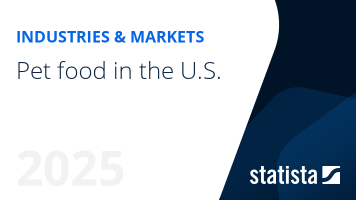If one enterprise knows how to keep growing in a challenging global environment via shrewd acquisitions and divestment, it is Nestlé.
and intent on keeping it that way. Its North American business can be seen as an example of acquisitions paying their dividends. The heart of Nestlé’s NA business is the
. The success in this industry can be traced back to the acquisitions of pet care companies Spillers Petfoods and Ralston Purina around the turn of the century, which vastly expanded the company’s presence in the pet food sector and especially in the U.S. market.
More recently Nestlé bought a majority of shares for the Brazilian premium chocolate company Grupo CRM. This purchase brought the brands Kopenhagen and Brazil Cacau into Nestlé’s sizeable brand portfolio. Nestlé also acquired the coffee brand Seattle’s Best Coffee from Starbucks in 2022.
The business of the number one
As the biggest Fast Moving Consumer Goods (FMCG) company on the planet, the Swiss corporation needs no real introduction. Its business is primarily made with the sale of powdered and liquid beverages and pet care products with more than 25 billion Swiss francs and over 18 billion Swiss francs in sales, respectively. Among the
sectors the company is active in, confectionery ranks sixth in sales but has been growing for the past three years. This reversed a downward
trend in confectionery sales from 2012 to 2020. In 2018, Nestlé divested itself from its U.S. confectionery business and sold it to Ferrero intending to focusing on growth markets in other categories.
Moving ahead with a tainted reputation
Nestlé had its share of scandals, from the critique of its advertising practices for baby food in developing countries in the 1970s to more recent accusations of child labor on plantations that supply the company with cocoa. Nestlé responded by implementing its Cocoa Plan: a program which includes a Child Labor Monitoring and Remediation System designed to reduce child labor risks. By now, 85.5 percent of its
cocoa is sourced through this plan.
Staying in the lead
Nestlé is likely to continue to acquire, or divest itself of, brands and companies based on profitability, with the aim of extending its business and securing its leadership position. At the same time, Nestlé is doing more than assuage concerns about child labor. The company is moving forward with a transition of energy supplies for its manufacturing and as of 2023, more than 91 percent of the company’s electricity demand for product
manufacturing is covered by renewables. Furthermore, Nestlé boasts a share of 46.4 percent of
women in middle and senior management positions. The company thus also addresses consumer demands for sustainability and social representation, future proofing its reputation.
This text provides general information. Statista assumes no
liability for the information given being complete or correct.
Due to varying update cycles, statistics can display more up-to-date
data than referenced in the text.














































